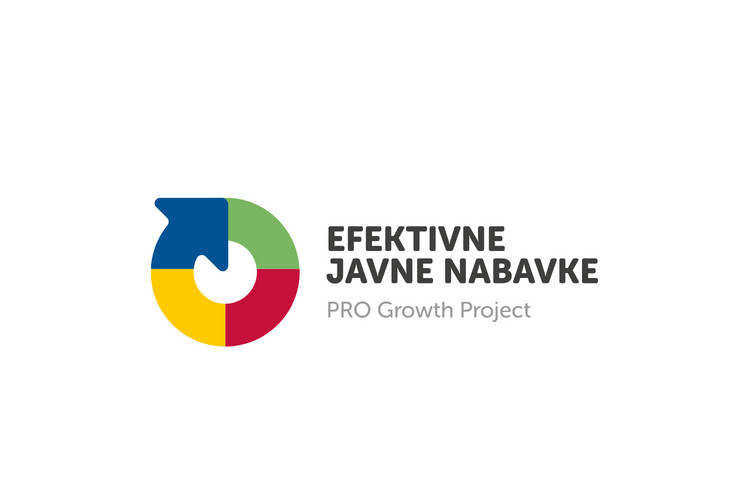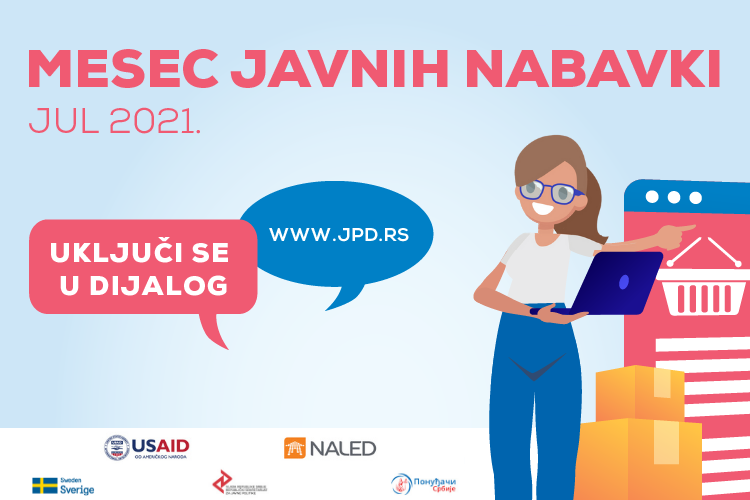How about green? Sure, but not yet in my house
Would you buy merchandise made of recycled materials? Or a product whose production brings less air pollution? Yes and yes, companies and citizens agree, but unfortunately beyond this principal readiness to purchase goods and services that have a slightly lower impact on the environment, not much progress has been made.
The companies in Serbia have undoubtedly learned a lesson in the pandemic when the supply chains were broken. But let's not underestimate the economic literacy of our businesses: it is no doubt, even before the pandemic, companies were aware of the need to use domestic resources and internal reserves. That means that using waste, recycling and energy would open up new jobs and business. And green public procurement would encourage the production and consumption of products that contain recycled materials, produced to standards that protect the environment and human health.
The results of the latest research on green public procurement conducted by NALED show that domestic businessmen are aware of the importance of environmental criteria when procuring goods and services.
The research shows that most bidders are familiar with the environmental criteria in the public procurement procedure, but the most well-known criterion is by far the quality criterion.
Only a third of the contracting authorities who are at least a little familiar with the ecological criteria say that they apply this criterion always or often, while other criteria are applied even less often, except for the quality criteria.
According to the findings, 83% of the surveyed bidders believe that environmental criteria are important for the procurement of goods or services, while 85% point out that the energy efficiency criterion is very important.
Citizens believe that the quality criterion is the most important for the procurement of goods and services in Serbia, while one in ten citizens believes that the environmental criterion is the most important.
According to the citizens, environmental protection is on the fourth place of priority for investments through public procurements, while the first three places include health, education and infrastructure and roads.
However, the “as cheap as possible” criterion still wins in public procurement.
Why is there no green public procurement in Serbia? In fact, they are not formally in the records of the Public Procurement Office yet, but it is assumed that they can be found at times .
The legal framework for green public procurement exists, in line with EU regulations.
The Law on public procurement provides for the possibility of procuring goods and services according to green criteria, but those who announce public procurement are not stimulated to buy goods that have a less negative impact on the environment.
The state is first expected to further define priority areas and specific objectives in green public procurement. The second step is promotion, promotion, promotion, and the third, perhaps essential, concrete incentives for green procurement. Subsidies or fiscal incentives? Some research says that subsidies are not a good way. But this can be debated later on.
Should Serbia be the one inventing hot water? No, it is enough to look at what is happening in the neighborhood. According to NALED analyzes, Croatia has made remarkable progress in green public procurement, not to mention Slovenia.
According to the Slovenian regulation on green public procurement from 2018, at least 15% of purchased food should be of organic origin, 50% of office and hygienic paper should come from forests managed in a sustainable way, and at least 50% of electricity should come from renewable sources.
However, for each of the green public procurement cases, the Slovenian competent services have prescribed detailed specific guidelines and proposed criteria. For all concerns, a list of contact persons (with telephone numbers and e-mail addresses) is provided for additional information. So, it seems that the ball is still in the yard of the state. We have no right to be angry with the participants in the public procurement procedure because they are guided by the motto: "Let it be as cheap as possible."
Related Content
Effective public procurement in the service of economic growth
26.01.2021
The project envisages the improvement of digital solutions in the implementation...Read moreTraining for purchasers and bidders for a larger number of green public procurement
30.07.2021
Even though as much as 60% of surveyed purchasers state they are familiar with...Read morePublic Procurement Month launched, citizens choose quality ahead of price
06.07.2021
One in two citizens of Serbia admit that they know almost nothing about public...Read moreThis website uses cookies to ensure the best user experience. By continuing to browse the site, you consent to the use of cookies.
CONTINUE LEARN MORE


